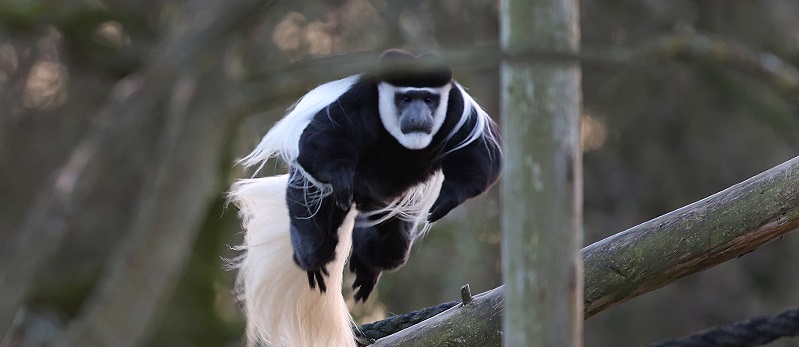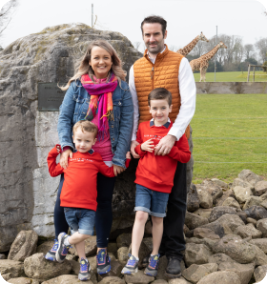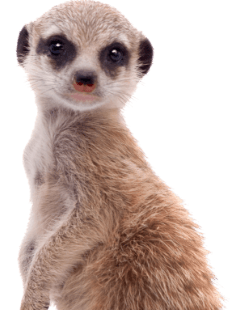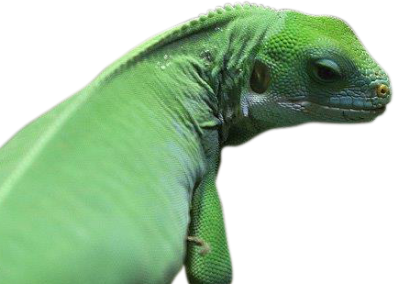Black & White Colobus
KEY FACTS
-
LATIN NAMEColobus guereza kikuyuensis
-
BIOMETropical Forests
-
CLASSMammal
-
ORDERPrimates
-
CONSERVATION STATUSLeast Concern
COME AND FIND ME AT..
The Meerkat Habitat

About the Black & White Colobus
A distinctive-looking monkey with its long black and white fur, the name ‘Colobus’ derives from the Greek word ‘mutilated’ in reference to the fact that this species – unlike other monkeys – has nothing more than a stump on its hand in place of a thumb. Colobi measure up to 30 inches in length when they are fully grown, weigh between 15 and 30 pounds and have a grey face that has no fur.
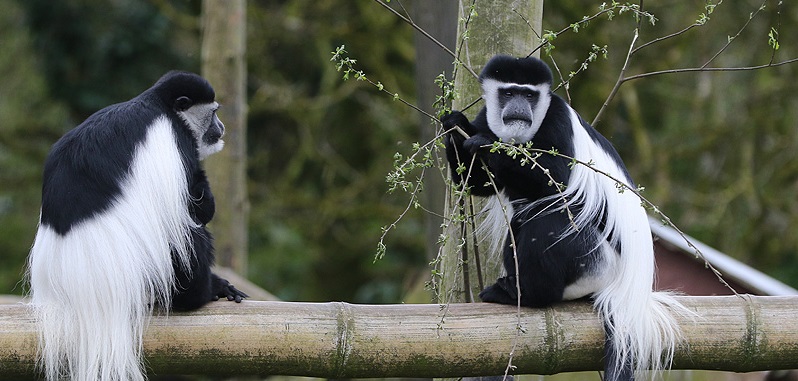
Habitat
Native to Africa, Colobus monkeys are herbivorous and eat leaves, fruit, flowers and twigs. Its complex digestive system allows it consume more mature foliage that can be toxic to other animals, while its lightweight bone structure and elongated limbs allow it move seamlessly through its forest home.
Wild Notes
Troops consist of between five and ten animals – a dominant male, several females as well as young – and each group will define and defend what they consider to be their territory. Males use croaking sounds, which resonate through the forest, to make others aware of their presence while the responsibility of rearing young is shared within the troop. Females tend to suckle infants for over a year and give birth an average of every 20 months.
Conservation
Although listed as Least Concern, the Black and White Colobus is popular for its unique pelt and coat and has been hunted for centuries because of this. It is also threatened by agricultural developments and timber production within its native habitats.
Did You Know?
Newborns are covered in white fur initially, which gradually changes colour. Young fully gain their striking black and white colouration at about three months. Kenyan Guerezas living at high altitude, meanwhile, are frequently albino – though for unknown reasons.
The Fota Connection.
The Park’s Colobus monkeys are of a race known as kikuyuensis, which originate in the cool mountain forests of Kenya. They eat monkey chow, fruits, vegetables and willow branches and the current group is made up solely of bachelors, who arrived in Cork from Belfast Zoo. Predominantly a leaf-eating monkey, the Colobus habitat was moved to its current location in 2011.
